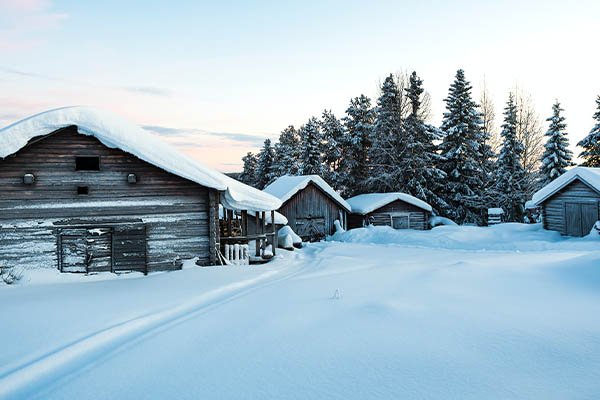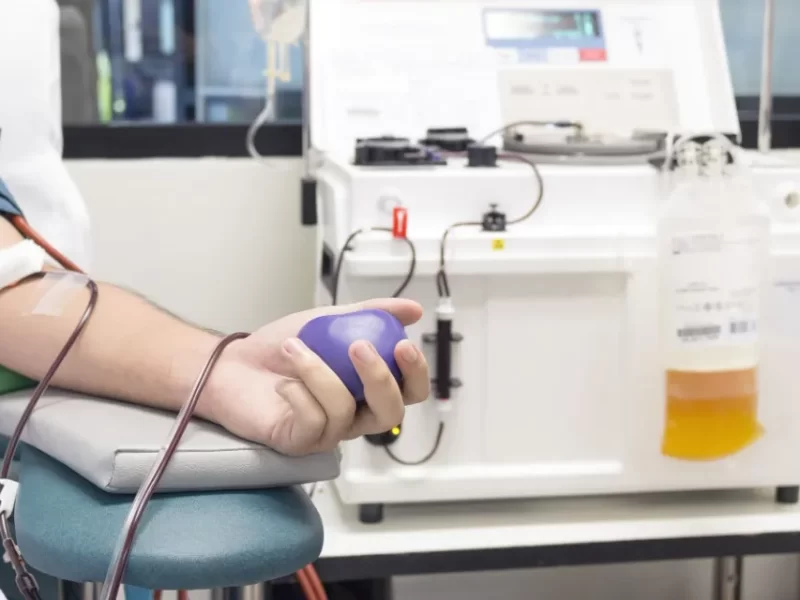Winter can be a precarious time for human beings over the age of sixty-five. It’s essential to recognize what the dangers are and how to tackle them so you and your cherished one can get the most out of the season. Keep reading and you will find some solutions to deal with cold weather for the elderly.
What Does Cold Weather Can Cause
Hypothermia
Older adults are especially susceptible to hypothermia because their bodies lose heat more snappily than they used to. Hypothermia sets in when the body temperature drops below 95 °, which can do indeed in 60 ° weather. The trouble of hypothermia is twice dangerous, because when the blood vessels and highways narrow, blood inflow is confined and can spark heart attacks, order problems and liver damage.
Falls
Cascade is always a concern for aged grown-ups, due to the loss of muscle, vision problems, and dropped balance that are natural side goods of aging. During the downtime, still, snow and ice can dramatically increase the threat of cascade.
Flu
Seniors should be especially careful during flu season because, as people age, it becomes more delicate for their vulnerable systems to fight the contagion. Aged grown-ups are also more vulnerable to implicit complications from the flu, especially respiratory issues like pneumonia.
Frostbite
According to Advantage Home Care, the threat of frostbite increases for people who are formerly living with certain habitual ails, like diabetes, vascular complaint and COPD, and for people taking specific specifics, like beta blockers and certain sleeping capsules.
Carbon Monoxide Poisoning
Gas-powered furnaces and volition heating sources make downtime the most dangerous time for carbon monoxide poisoning. Though it may not be the first pitfall you consider for downtime weather safety, seniors and their families should be apprehensive of the symptoms of CO poisoning – headaches, confusion, dizziness, nausea – and be sure they don’t confuse them for the symptoms of influenza or tiredness.

Seasonal Affective Disorder
One of the most common cold weather tips for seniors is to stay outside, and while that’s veritably good advice to avoid illness or injury, it can also lead to other complications. Seasonal Affective complaint (SAD) is caused by a lack of sun that comes with shorter days and lower time spent outdoors. SAD can bring on symptoms of depression, including lack of energy, changing sleep patterns, perversity and tone-assessed insulation. insulation also creates its own issues, negatively affecting the vulnerable system and heart health.
What Are The Warning Signs Of Hypothermia
Occasionally it’s hard to tell if a person has hypothermia. Look for suggestions. Is the house veritably cold? Is the person not dressed for cold weather? Is the person speaking slower than normal and having trouble keeping his or her balance?
Watch for the signs of hypothermia in yourself, too. You might come confused if your body temperature gets veritably low. Talk to your family and musketeers about the warning signs so they can look out for you.
Early signs:
- Cold feet and hands
- Puffy or swollen face
- Pale skin
- Shivering (in some cases the person with hypothermia does not shiver)
- Slower than normal speech or slurring words
Later signs:
- Moving slowly, trouble walking, or being clumsy
- Stiff and jerky arm or leg movements
- Slow heartbeat
- Slow, shallow breathing
- Blacking out or losing consciousness
How To Lower The Chance Of Getting Hypothermia
Keep Warm Inside
Living in a cold house, apartment, or other structure can cause hypothermia. In fact, hypothermia can be to someone in a nursing home or group installation if the apartments aren’t kept warm enough. However, pay attention to the inside temperature and to whether that person is dressed warmly enough, If someone you know is in a group installation.
People who are sick may have special problems keeping warm. Don’t let it get too cold inside and dress warmly. Indeed if you keep your temperature between 60 °F and 65 °F, your home or apartment may not be warm enough to keep you safe. This is a special problem if you live alone because there’s no one differently to feel the nippiness of the house or notice if you’re having symptoms of hypothermia.
Bundle Up On Windy, Cold Days
A heavy wind can rapidly decrease your physique temperature. Check the climate forecast for windy and bloodless days. On these days, attempt to continue to be internal or in a heat place. If you have to go out, put on heat clothes, and do not continue to be out in the bloodless and wind for a lengthy time.
Here are some other tips:
- Dress for the weather if you have to go out on chilly, cold, or damp days.
- Wear loose layers of apparel. The air between the layers helps to keep you warm.
- Put on a hat and scarf. You lose a lot of body heat when your head and neck are uncovered.
- Wear a waterproof coat or jacket if it’s snowy.
- Change your clothes right down if they get damp or wet.
Illness, Medicines, And Cold Weather
Talk with your doctor about your health problems and how to help with hypothermia.
Taking some drugs and not being active also can affect body heat. These include drugs you get from your doctor and those you buy untoward, similar to some cold drugs. Ask your doctor if the drugs you take may affect body heat. Always talk with your doctor before you stop taking any drug.
Some illnesses may make it harder for your body to stay warm:
- Thyroid problems can make it hard to maintain a normal body temperature.
- Diabetes can keep blood from flowing typically to give warmth.
- Parkinson’s complaints and arthritis can make it hard to put on further clothes, use a mask, or get out of the cold wave.
- Memory loss can beget a person to go outdoors without the right apparel.



